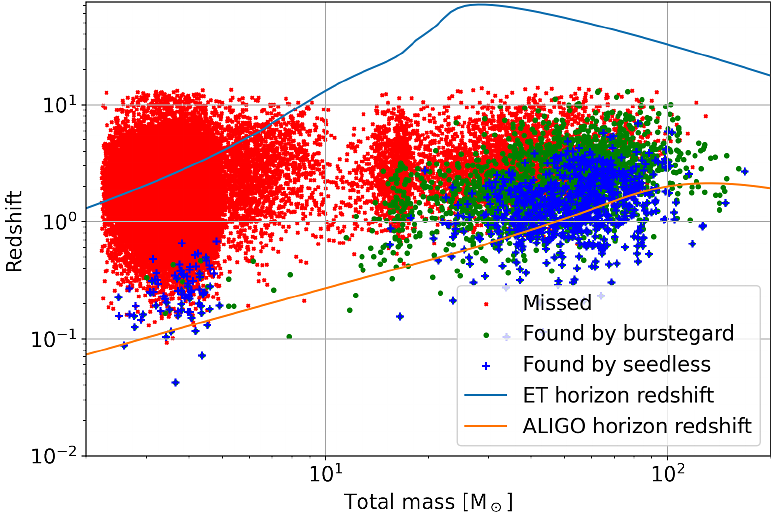Weakly modeled search for compact binary coalescences in the Einstein Telescope

Weakly modeled search for compact binary coalescences in the Einstein Telescope
Adrian Macquet, Tito Dal Canton, Tania Regimbau
AbstractWe search for gravitational-wave (GW) signals from compact binary coalescences (CBC) in the $2024$ mock data challenge of the Einstein Telescope (ET) with a detection algorithm that does not rely on the waveform of the signal searched. With the increased sensitivity of ET compared to current GW detectors, a very high rate of detectable sources is expected in the data, and the computational cost of the searches may become a limiting factor. This is why we explore the behavior of a weakly modeled search algorithm, which is intrinsically less sensitive than optimal search methods based on matched filtering techniques, but computationally much cheaper. This search recovers a significant fraction of CBC signals present in the data: 38% of the total number of binary black hole mergers, including 89% of the systems with a total mass above 100 solar masses, as well as the majority of binary neutron star (BNS) mergers closer than 850 Mpc (z=0.17). It is also able to estimate the chirp mass of the recovered BNS with an average precision of 1.3%. We also find that the usual method for estimating the background in transient GW searches, that consists in time-shifting the data from one detector with respect to the others, is impacted by the presence of loud CBC signals in the data, so we use the null stream instead as a signal-free channel to estimate the background of this search.